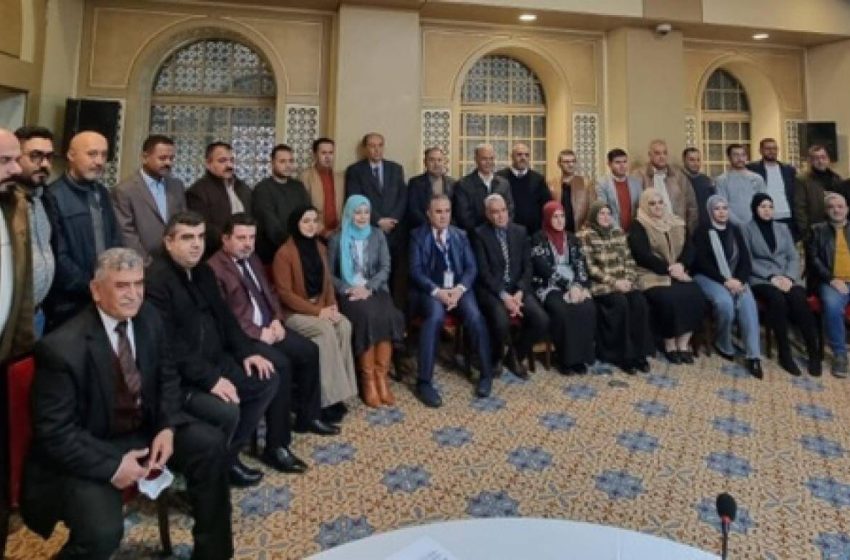FAO provides quarantine and border inspection staff with training

Specialists from the veterinary services in Baghdad, Erbil, Duhok, Nineveh, Anbar, Wasit, Muthanna and Basra, and from the Ministry of Health. Photo: FAO
Baghdad (IraqiNews.com) – The Food and Agriculture Organization of the United Nations (FAO), in coordination with the Iraqi Ministry of Agriculture and Ministry of Agriculture and Water Resources in Kurdistan hosted the Quarantine and Border Inspection Procedures workshop, as part of the United States Defense Threat Reduction Agency (DTRA) funded project, Improving Delivery of Animal Health Services and Disease Surveillance in Iraq, according to a press statement issued by the FAO.
The workshop aims to strengthen the knowledge and skills of quarantine and border inspection staff to implement the quarantine procedures, the statement mentioned.
30 specialists from the veterinary services in Baghdad, Erbil, Duhok, Nineveh, Anbar, Wasit, Muthanna and Basra and two from the Ministry of Health participated to the training. The opening session was attended by the FAO Representative in Iraq and officials from relevant ministries, the statement elaborated.
FAO Representative, Salah ElHajj Hassan, indicated that maintaining the health and safety of animal wealth, developing the livestock sector and upgrading its production, preserving the safety of products of animal origin and preventing animal diseases through strong border inspection is important to protect human health and safety of agriculture, forestry, fishery and environment.
National and international experts discussed the legal framework in Iraq on quarantine inspection and borders control of live animals and animals’ products during the workshop, the statement elaborated.
The training focused on qualitative and quantitative risk assessments, the key tools for countries quarantine protection measures identifications and risk mitigations of introduction of pathogenic agents from other countries, the statement added.
